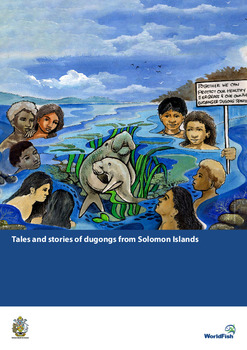Tales and stories of dugongs from Solomon Islands
Abstract
In Solomon Islands, seagrass is found in almost every province. Large seagrass beds can be found in Western, Choiseul and Malaita provinces, and Lau lagoon contains the largest area of seagrass in the country. Seagrass beds are one of the most valuable habitats for Solomon Islanders. Fishers use them as fishing grounds, while farmers use them for mulching their gardens to enrich the soil and help improve their yield. Dugongs are important for keeping coastal habitats healthy, and they are a valuable source of food. In Solomon Islands, dugongs have high cultural value in many communities. Since they reproduce slowly, hunting has a big impact. In 2018, it became illegal to hunt and kill dugongs under the Fisheries Management (Prohibited Activities) Regulations 2018. This booklet is dedicated to all who kindly shared their kastom stories: the Bailangi and Buni tribes of Lau Lagoon; the communities of Lau Lagoon, Malaita Province; the Kidipale tribe, Naro, Guadalcanal Province; and the communities of Utupua, Temotu Province

